Better Homes And Gardens Crossmill Hall Tree Bench
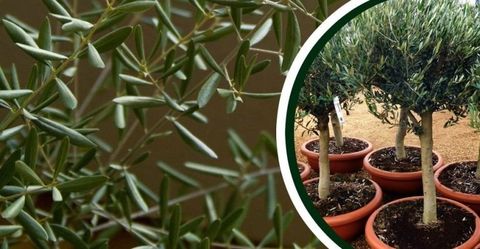
Getty/MIXA /Olive Grove Oundle
It can't be denied that creating an indoor urban jungle is becoming increasingly popular; Instagram feeds and Pinterest boards everywhere have been inundated with idyllic bohemian images of every room of the house filled with glorious greenery.
What started with an indoor potted palm or succulent here and there, has now developed into homeowners and would-be gardeners becoming bold in their interior choices when it comes to greenery – and it seems that bigger is better.
While the John Lewis retail report predicted the cactus was going to be the 2017 plant of choice, Houzz has stated that oversized plants like the Madagascar Dragon Tree, Fiddle Leaf Fig and Umbrella Plant are among the top 10 plants to grow indoors.
Yes, it appears that the humble houseplant has just got an international upgrade. However, one variety that is often overlooked is the olive tree (olea europaea). Known for gracing the balmy landscapes of the Mediterranean, these ancient plants are particularly tolerant of dry air (and to an extent – soil) meaning they thrive indoors as well as outside when the warmer weather arrives, making it an adaptable houseplant and bringing a touch of sunnier climes into our daily lives.
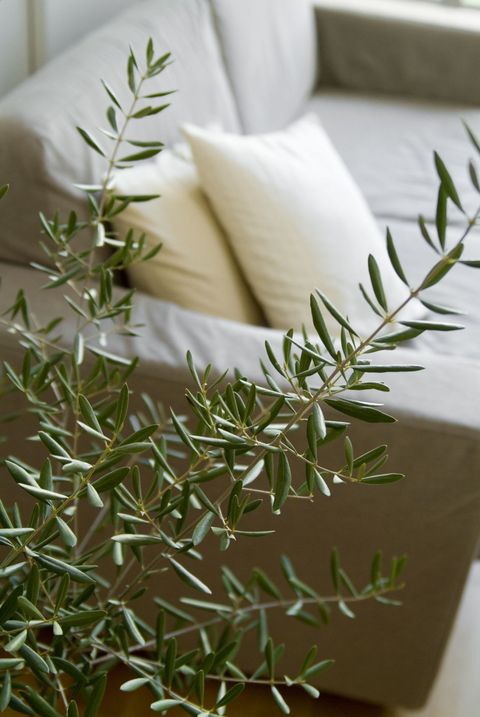
MIXA Getty Images
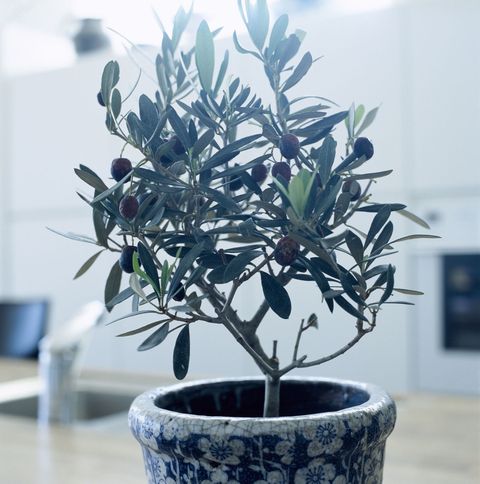
Annika Vannerus Getty Images
Do you want to add an olive tree to your indoor haven? Follow this advice first:
1. Choose wisely: Some varieties of olive trees can grow up to 10 feet tall, and while we are championing the notion of 'bigger is better' – a 10-foot olive tree might be pushing the boundary. It's best to opt for a dwarf variety as these only grow up to six foot. Pruning them helps to keep them compact, while if you are still feeling cautious, you can opt for a bonsai version.
2. Many of us are opting for large plants to brighten up dark corners of a room, but olive trees want to soak up those rays! Make sure that you have a spot in your home that gets direct sunlight for a minimum of six hours. If you are lucky enough to have that coveted southern exposure, this is the very spot! Although let it be said that the plant should be positioned far back enough from the glass – the leaves can burn from the intensified sunlight.
3. When it comes to repotting, there are rules to follow. It's important to seek out suitable soil; a sandy mix that drains easily is what you should look out for - cactus potting soil is ideal. You need to leave around an inch between the soil and the rim of the pot to leave room for watering; drainage is really important for olive trees, so be sure to choose a pot with drainage holes. Where possible, elevate the tree above a drip tray to make drainage even easier. It's likely your plant will need repotting after a year of owning it because the roots will have become crowded; for best results, move it up one pot size each time.
4. How do you know when to water? You need to put your finger into the soil until it's about an inch deep – if the soil feels dry, it's time to water. It's worth noting that in autumn and winter, the rate of growth slows and it's easy to overwater, that's why going by touch is best practice.

Olive Grove Oundle
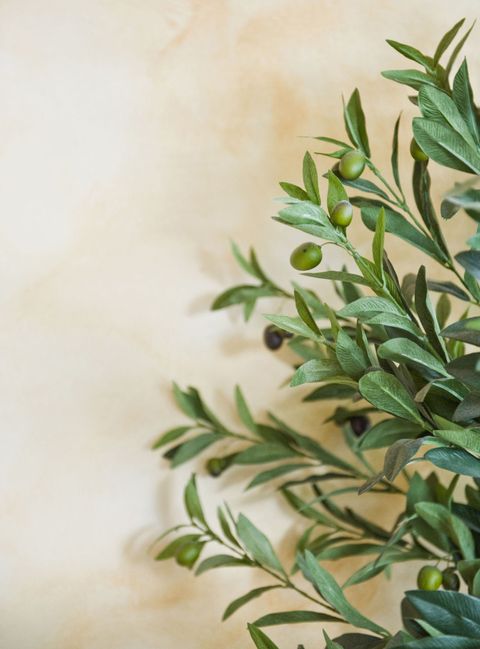
Daniel Reiter / STOCK4B Getty Images

Olive Grove Oundle
5. As well as going steady on the watering front during the winter months, it's time to ease off the 'feeding' too. During spring and summer, olive trees require a balanced houseplant fertiliser twice a month – but this drops to once a month in autumn and winter.
6. Indoor olive trees are unfortunately vulnerable to scale; insects that suck sap and weaken plants. You can identify plants that are being affected by the sooty deposits, or white waxy eggs on leaves and scales, on the stems and leaves. If you spot any of these signs, it can be treated by spraying insecticidal soap.
7. If you had dreams of cold pressing your own olive oil, that probably won't happen with an indoor plant – they need to experience the drop in nighttime and daytime temperatures and two months of temperatures below 10 degrees Celsius in order to produce fruit. While they are native to notoriously warm countries, olive trees can withstand temperatures as low as -7 degrees!
8. If you decide that you want to move your olive tree into the garden, it will need to be transitioned gradually. All danger of frost needs to have passed for the tree to survive outside; it should be first moved into a sheltered spot of the garden and exposed to wind and sun over a period of 10 days to help it to acclimatise. The tree is self-fertile, but if you plant it in the garden then planting more than one tree will aid cross-pollination and yield a bigger harvest. If you want to bring the plant back inside once the warmer weather begins to wane, you will need to acclimatise it once again. Moving it back to a shaded spot with lower levels of light helps it to adjust to indoor conditions.
9. Finally, in order to keep olive trees from outgrowing their space in your home, the tips need to be pruned. To make sure that the foliage receives plenty of light and air, prune out entire branches – this also maintains a full, bushy shape.
And there you have it – a place for caring for these ancient plants. Olive trees are becoming popular home editions, guaranteed to make a statement and bring a touch of the Mediterranean to your home or garden.
Discover a huge selection of olive trees at Olive Grove Oundle
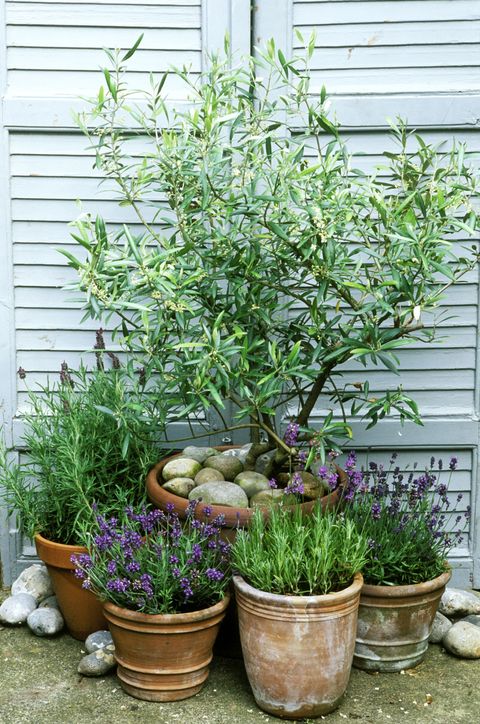
Juliette Wade Getty Images
Get inspiration, ideas and advice wherever you are! Follow us on Facebook: House Beautiful UK | Pinterest: House Beautiful UK | Twitter: @HB | Instagram: @housebeautifuluk
Olivia Heath Executive Digital Editor, House Beautiful UK Olivia Heath is the Executive Digital Editor at House Beautiful UK where she's busy uncovering tomorrow's biggest home trends, all whilst delivering stylish room inspiration, small space solutions, easy garden ideas and house tours of the hottest properties on the market.
This content is created and maintained by a third party, and imported onto this page to help users provide their email addresses. You may be able to find more information about this and similar content at piano.io
Better Homes And Gardens Crossmill Hall Tree Bench
Source: https://www.housebeautiful.com/uk/garden/plants/a1444/olive-trees-houseplant-trend-indoor-outside/
Posted by: walkerbegaid.blogspot.com

0 Response to "Better Homes And Gardens Crossmill Hall Tree Bench"
Post a Comment